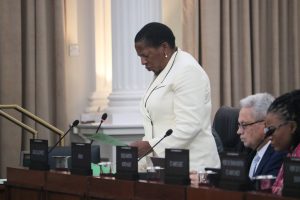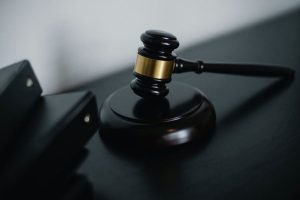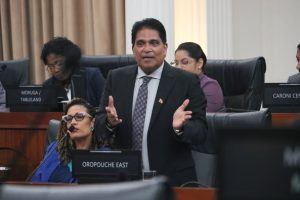By Chantalé Fletcher
PRIME Minister Dr Keith Rowley says that mandatory vaccines are not being considered by Cabinet.
He was speaking during a media conference at the Diplomatic Centre, St Ann’s on Saturday.
Dr Rowley said, “Vaccination programme in Trinidad and Tobago is voluntary.
“This should not surprise anybody, as we expect everyone wants to live and wants to survive the virus. Therefore, we leave it for your actions to give you the best chance with that outcome, because the response to this virus is largely personal responsibility.”
Dr Rowley made reference to a television interview earlier this week when he was asked whether the government will make the vaccination programme legal and mandatory.
The PM had said, “We are carrying a voluntary programme and we have not considered a mandatory programme. However, if something ahead of us, a new virus, variant of this virus or any kind of infection assails this nation and is far more destructive than this one, then this government like any other government in the world will have to act.”

On Saturday, he said the matter of mandatory vaccination was not before the Cabinet.
Dr Rowley said, “We are not there at this stage, we are managing the virus and variants with what is in front of us at the very moment.”
He described conversations about mandatory vaccination as educating.
Dr Rowley said, “I am not a dictator and I will not be dictating to anyone in this country on any matter.
“However, if we find ourselves in a situation with a virus that is killing people like flies and we have a medication that can be administered to people.
“I don’t know that I’ll be inventing any new positions in this country, as there are a number of vaccines applied to this population on a daily basis without any of the moon landing.”

He said vaccinated people show better resistance to the variants. This meant that the vaccines are contributing to an improved human population, the prime minister said.
Dr Rowley said, “If we are vaccinated, it is the only known reducing response which reduces our exposure. It reduces our conditions, there is no cure.”
![]()











